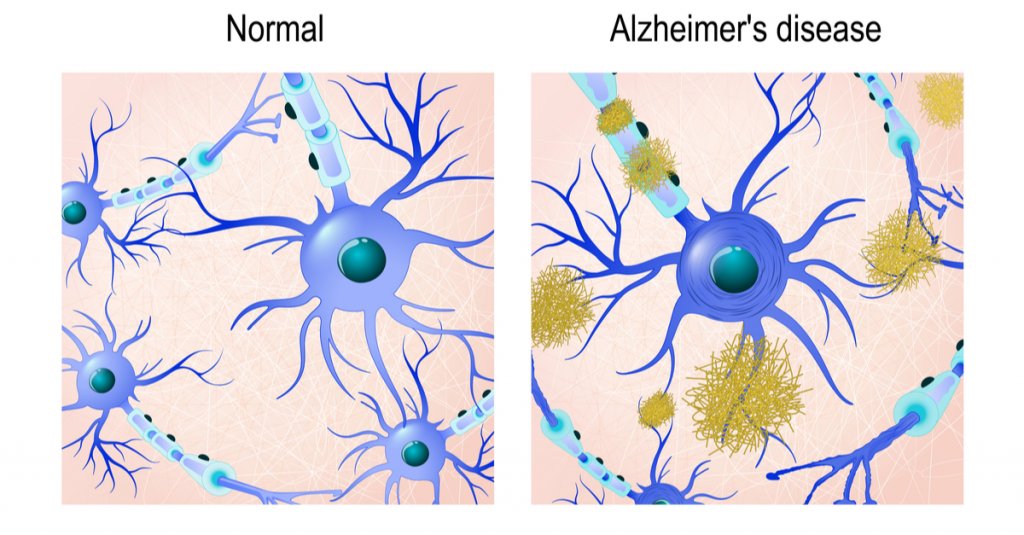Preserve Your Cognitive Health by Understanding the Risk Factors of Alzheimer’s Disease
We all experience lapses in memory now and then, especially as we age. For most of us, these minor cognitive issues are usually just annoyances.
It is forecasted that the UAE will see an increase of 1,795 per cent with people suffering from dementia by 2050, while other Gulf countries, such as Qatar and Bahrain, will also see a very high increase in dementia cases of 1,926 percent and 1,084 per cent, respectively.
But if your cognitive issues interfere with your daily life, they could be the beginning of something much more serious. Read on to learn more about the risk factors for Alzheimer’s disease and how you can preserve your cognitive health.
What Is Alzheimer’s Disease?
Alzheimer’s disease is a form of dementia that impacts a person’s ability to think, reason, and remember.
As it progresses, Alzheimer’s can severely affect quality of life, eventually becoming completely debilitating.
The most common type of Alzheimer’s disease is the late-onset form, when symptoms usually become more evident in [a person’s] 6th decade of life.”
The 10 Signs and Symptoms of Alzheimer’s Disease:

According to the Alzheimer’s Association, ten early warning signs of late-onset Alzheimer’s disease include:
- Memory loss that disrupts daily life
- Challenges in planning or solving problems
- Difficulty completing familiar tasks
- Confusion with time or place
- Trouble understanding visual images and spatial relationships
- New problems with words in speaking or writing
- Misplacing things and losing the ability to retrace steps
- Decreased or poor judgment
- Withdrawal from work or social activities
- Changes in mood and personality
If you experience a cognitive problem that impacts your daily life, don’t ignore it. Dementia is not a normal part of the aging process. The sooner you seek help, the sooner you can take action against cognitive decline.
What Are Some Risk Factors for Alzheimer’s Disease?
There’s still a lot we don’t know about how Alzheimer’s disease develops or why some people are at greater risk of developing it than others. It’s an active area of study, and researchers are discovering new things every day.
The consensus among scientists is that a combination of age, sex, genetic, environmental, and lifestyle factors contribute to the development of Alzheimer’s disease.
Let’s take a closer look at some of the greatest risk factors for Alzheimer’s:
- Prevalence studies demonstrated that dementia is indeed a prevalent condition in Arab countries, ranging between 1.1% and 2.3% among age groups of 50 years and older, as well as between 13.5% and 18.5% among age groups of 80 years and above.
- “There are more women with Alzheimer’s disease than men,” though this might be because women live longer than men.
- Suffering from a traumatic brain injury (TBI) can “increase the risk of developing Alzheimer’s or another type of dementia years after the injury takes place.”
- Acute and chronic inflammation is “associated with an increase in cognitive decline in Alzheimer disease.” Eating a diet full of inflammatory foods like processed sugar might exacerbate the risk of developing inflammation in the brain.
- Exposure to environmental pollutants has been linked to an increased risk of dementia. Researchers note “half of individual differences in Alzheimer’s disease risk may be environmental.”
- Studies discovered a “significantly increased risk of Alzheimer’s disease with current smoking.” This risk factor offers another compelling reason to quit.
2 Protein Structures in the Brain Linked to Alzheimer’s Disease
Scientists typically focus on two different protein structures in the brain associated with Alzheimer’s disease: Neurofibrillary tangles and amyloid plaques.
It’s not currently known whether the presence of these structures causes Alzheimer’s disease or if they’re simply byproducts of it. But both can impair cognitive function and can worsen as the disease progresses.
Neurofibrillary Tangles
Neurofibrillary tangles are accumulations of a harmful protein called tau in the brain’s neurons. These tangles can inhibit the neurons’ ability to communicate, causing cognitive decline. Some studies reveal hypoxia is associated with neurofibrillary tangles.
Amyloid Plaques
Amyloid plaques are hard, insoluble clumps of beta-amyloid proteins that build up between neurons. Like neurofibrillary tangles, these plaques are toxic to brain cells and disrupt cell-to-cell communication. They can eventually result in cellular death, harming cognitive abilities even further.
New imaging technologies can reveal the presence of both protein structures, so your doctor can alert you to the presence of Alzheimer’s disease or if you’re at risk for developing it.

Is Alzheimer’s Genetic?
Both early-onset and late-onset Alzheimer’s disease have a genetic component, meaning if you have a family history of Alzheimer’s, you carry a greater risk factor for developing the disease compared to someone who doesn’t have that history.
The risk factor is greater if an immediate family member suffers from the disease, such as a parent or sibling.
Genetics are almost always the primary contributing factor of early-onset Alzheimer’s disease, which can “affect people in their 30s or 40s.”
Gene Mutations
Researchers have yet to identify any specific genes responsible for the development of late-onset Alzheimer’s.
However, certain mutations of the APOE gene, which are found in chromosome 19, “[remain] the strongest, genetic risk factor for Alzheimer’s disease.”
For example, the specific gene mutation APOE ε4 is linked to higher levels of amyloid plaques and is often found in people with Alzheimer’s disease.
Your doctor may order genetic testing if you have a family history of cognitive problems or early-onset dementia.
Remember, this doesn’t mean you’re destined to develop Alzheimer’s if a parent or sibling has had it. Some people who possess the APOE ε4 gene never develop Alzheimer’s disease, and some people with Alzheimer’s don’t have any gene mutations at all.
Genetics is just one of many Alzheimer’s risk factors — we still need more research to get the complete picture of what the biggest risk factor for Alzheimer’s disease is.
How Can I Prevent Alzheimer’s Disease?

A specific hyperbaric oxygen therapy (HBOT) protocol shows promise as a potential preventative measure for biomarkers of Alzheimer’s disease.
HBOT is a therapy that involves breathing 100% oxygen under increased atmospheric pressure.
- Recent research illustrates a unique HBOT protocol can shrink existing amyloid plaques in the brain and even prevent new ones from forming altogether (in animal models): Repeated sessions of HBOT showed “reduced hypoxia and neuroinflammation, reduction in beta-amyloid (Aβ) plaques and phosphorylated tau, and improvement in behavioral tasks.”
- Another study revealed HBOT improved memory recall in people who exhibited mild cognitive impairment: “HBOT should be considered as a therapeutic approach to slow the progression or even improve the pathophysiology responsible for [Alzheimer’s] disease.”
These studies offer hope that HBOT may become a viable treatment method for preventing cognitive decline.
Lifestyle Habits to Safeguard Cognitive Health
While none of us can change our genetic makeup, we can change our lifestyle. Healthy habits can help lower your risk factor for nearly any disease, not just cognitive-related conditions. Lowering inflammation levels in your body can also help lower inflammation in the brain. Some of the things you can do to preserve your cognitive health include:
- Eating a healthy diet full of fruits and vegetables
- Exercising regularly
- Maintaining healthy blood pressure
- Keeping your mind active
- Maintaining a healthy weight
- Practicing mindfulness and meditation
- Avoiding excess alcohol
- Avoiding smoking
- Getting plenty of restful sleep
- Taking care of your mental health
- Reducing stress
The Aviv Medical Program’s Fight Against Cognitive Decline
The Aviv Medical Program was founded on the unique Hyperbaric Oxygen protocol discussed in earlier research studies.
This protocol involves fluctuating oxygen levels during the HBOT sessions. Oxygen level variations trigger the body’s self-healing process.
Cognitive Performance and Aging Program
The Aviv Medical Program offers a comprehensive cognitive performance and aging program. Our treatments are rooted in research and lean on a holistic and personalized approach.
Depending on your symptoms, needs, and goals, the program can include the following:
- In-depth medical history review
- Comprehensive physical and neurological exam
- Physical therapy evaluation
- Highly advanced brain imaging scans
- Neurocognitive tests
During the treatment, the program can include a combination of the following:
- Unique hyperbaric oxygen therapy session
- Cognitive training
- Physical training
- Dietary coaching
Carl & Vickie Eckert Praise Their Improved Cognitive Performance as “Remarkable” – Watch their story:
Married couple Carl and Vickie both had parents with dementia and cognitive decline. They soon realized they were experiencing the same cognitive issues that manifested in their parents.
The couple’s quality of life was not where it should have been, so they took action with the Aviv Medical Program. They call their experience with Aviv Clinics and improved cognitive performance “remarkable.”
“This is a very viable option…knowing that I was going to have such a complete assessment only for me and my issues was just remarkable. I’m dancing, I’m hiking, I’m running again. It’s just remarkable. I don’t know how else to say it.” – Vickie Eckert, former Aviv client
Lower Your Risk with Aviv Clinics Dubai
While we still have a lot to learn about the risk factors of Alzheimer’s disease, anyone can lower their likelihood by taking charge of their lifestyle.
Preserving your cognitive health starts with the choices you make every day. Partnering with Aviv Clinics Dubai brought to you by DP Worlds is just one of them.
Contact our medical team to learn how we can help you.
